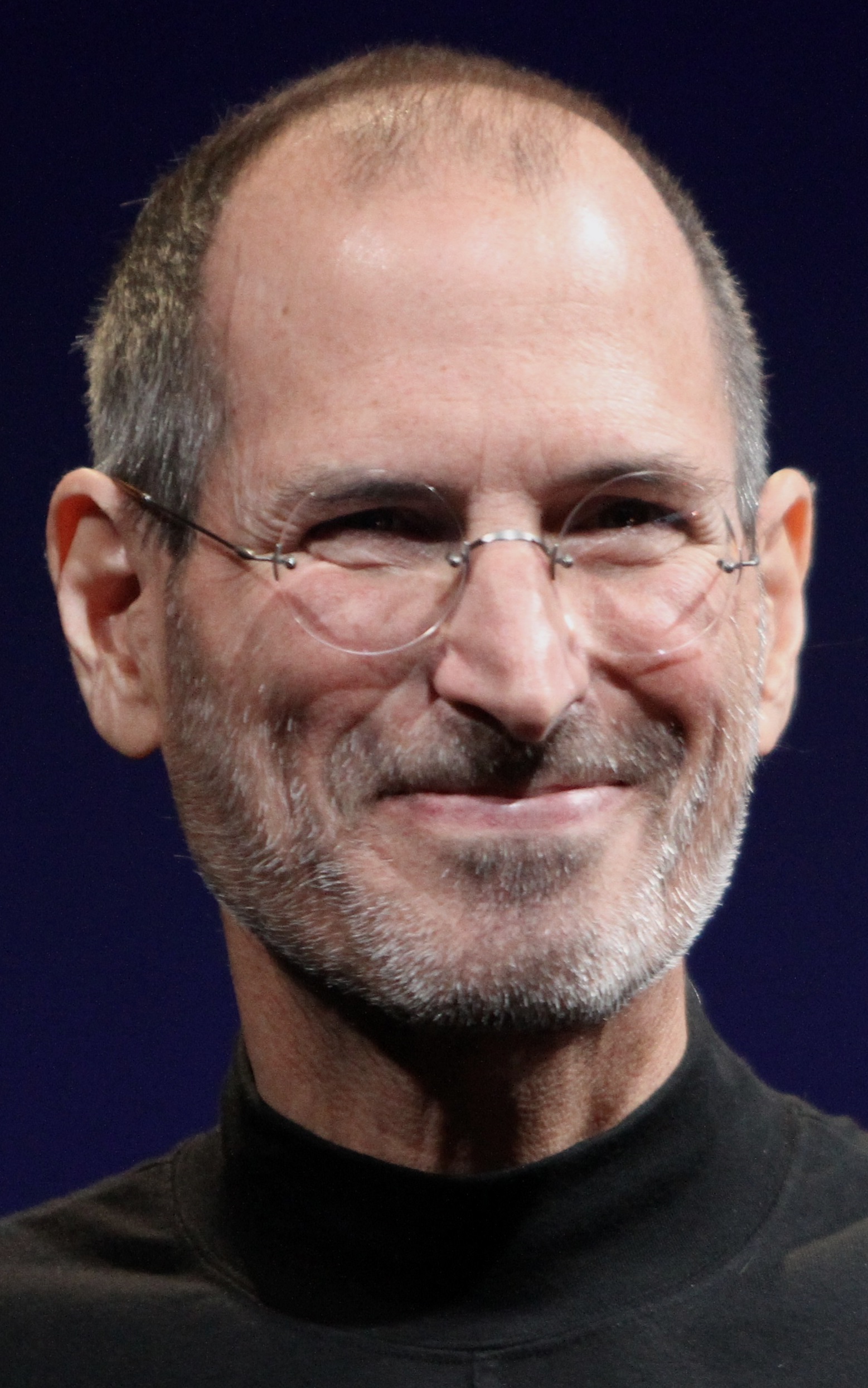As quoted in The Guts of a New Machine (30 November 2003) https://www.nytimes.com/2003/11/30/magazine/the-guts-of-a-new-machine.html
2000s
Steve Jobs Quotes
Steve Jobs, Playboy, Feb 1985, as quoted in “Steve Jobs Imagines 'Nationwide' Internet in 1985 Interview” https://paleofuture.gizmodo.com/steve-jobs-imagines-nationwide-internet-in-1985-intervi-1671246589, Matt Novak, 12/15/14 2:20pm Paleofuture, Gizmodo.
1980s
“I would trade all of my technology for an afternoon with Socrates.”
As quoted in Newsweek (29 October 2001), "The Classroom Of The Future" http://archive.is/20130104221536/www.thedailybeast.com/newsweek/2001/10/28/the-classroom-of-the-future.html
2000s
Variant: I would trade all of my technology for an afternoon with Socrates.
Interview about the release of the Macintosh (24 January 1984) - (online video) http://pulsar.esm.psu.edu/Faculty/Gray/graphics/movies/sj84.mov
1980s
1990s
As quoted in Fortune (19 February 1996)
1990s
As quoted in Apple Confidential 2.0: The Definitive History of the World's Most Colorful Company (2004) by Owen W. Linzmayer
2000s
Variant: I'm the only person I know that's lost a quarter of a billion dollars in one year… It's very character-building.
An old saying at Apple Computer, attributed to Steve Jobs, meaning that it is important to actually deliver. http://c2.com/cgi/wiki?RealArtistsShip
1980s
On the first NeXT Computer, as quoted in The New York Times (8 November 1989)
1980s
A phrase he has famously used in making announcements of products towards the end of many of his presentations, as quoted in "How to Wow 'Em Like Steve Jobs" in BusinessWeek magazine (6 April 2006) http://www.businessweek.com/smallbiz/content/apr2006/sb20060406_865110.htm
2000s
1990s, Rolling Stone interview (1994)
2000s, WWDC 2006
It was their farewell message as they signed off. Stay Hungry. Stay Foolish. And I have always wished that for myself. And now, as you graduate to begin anew, I wish that for you. Stay Hungry. Stay Foolish.
2000s, Address at Stanford University (2005)
2000s, Address at Stanford University (2005)
2000s, Address at Stanford University (2005)
2000s, Address at Stanford University (2005)
As quoted in "The Seed of Apple's Innovation" in BusinessWeek (12 October 2004)
2000s
1980s, Playboy interview (1985)
he wouldn't have been able to tell him the ways the telephone would affect the world. He didn't know that people would use the telephone to call up and find out what movies were playing that night or to order some groceries or call a relative on the other side of the globe. But remember that first the public telegraph was inaugurated, in 1844. It was an amazing breakthrough in communications. You could actually send messages from New York to San Francisco in an afternoon. People talked about putting a telegraph on every desk in America to improve productivity. But it wouldn't have worked. It required that people learn this whole sequence of strange incantations, Morse code, dots and dashes, to use the telegraph. It took about 40 hours to learn. The majority of people would never learn how to use it. So, fortunately, in the 1870s, Bell filed the patents for the telephone. It performed basically the same function as the telegraph, but people already knew how to use it. Also, the neatest thing about it was that besides allowing you to communicate with just words, it allowed you to sing. … It allowed you to intone your words with meaning beyond the simple linguistics. And we're in the same situation today. Some people are saying that we ought to put an IBM PC on every desk in America to improve productivity. It won't work. The special incantations you have to learn this time are "slash q-zs" and things like that. The manual for WordStar, the most popular word-processing program, is 400 pages thick. To write a novel, you have to read a novel—one that reads like a mystery to most people. They're not going to learn slash q-z any more than they're going to learn Morse code. That is what Macintosh is all about. It's the first "telephone" of our industry. And, besides that, the neatest thing about it, to me, is that the Macintosh lets you sing the way the telephone did. You don't simply communicate words, you have special print styles and the ability to draw and add pictures to express yourself.
1980s, Playboy interview (1985)
On why he delayed the Leopard OS in favor of developing the iPhone rather than hiring more developers, at the annual Apple stockholder's meeting (10 May 2007) as quoted in "Apple's Jobs brushes aside backdating concerns" at c|net News (10 May 2007) http://archive.is/20130628220833/http://news.com.com/2100-1041_3-6182965.html?part=rss&tag=2547-1_3-0-5&subj=news
As quoted in "Apple iPhone: more secrets revealed" (11 May 2007) http://www.tech.co.uk/computing/mac/news/apple-iphone-jobs-spills-more-secrets?articleid=1431998781
2000s
Variant: I wish developing great products was as easy as writing a check … if so, then Microsoft would have great products.
That's not what we think design is. It's not just what it looks like and feels like. Design is how it works.
As quoted in The Guts of a New Machine (30 November 2003) https://www.nytimes.com/2003/11/30/magazine/the-guts-of-a-new-machine.html
2000s
“People say sometimes, "You work in the fastest-moving industry in the world."”
I don't feel that way. I think I work in one of the slowest. It seems to take forever to get anything done. All of the graphical-user interface stuff that we did with the Macintosh was pioneered at Xerox PARC [the company's legendary Palo Alto Research Center] and with Doug Engelbart at SRI [a future-oriented think tank at Stanford] in the mid-'70s. And here we are, just about the mid-'90s, and it's kind of commonplace now. But it's about a 10-to-20-year lag. That's a long time.
1990s, Rolling Stone interview (1994)
Source: Republished email to Gawker's Ryan Tate, May 2010 https://web.archive.org/web/20100919141354/http://gawker.com/5539717/
